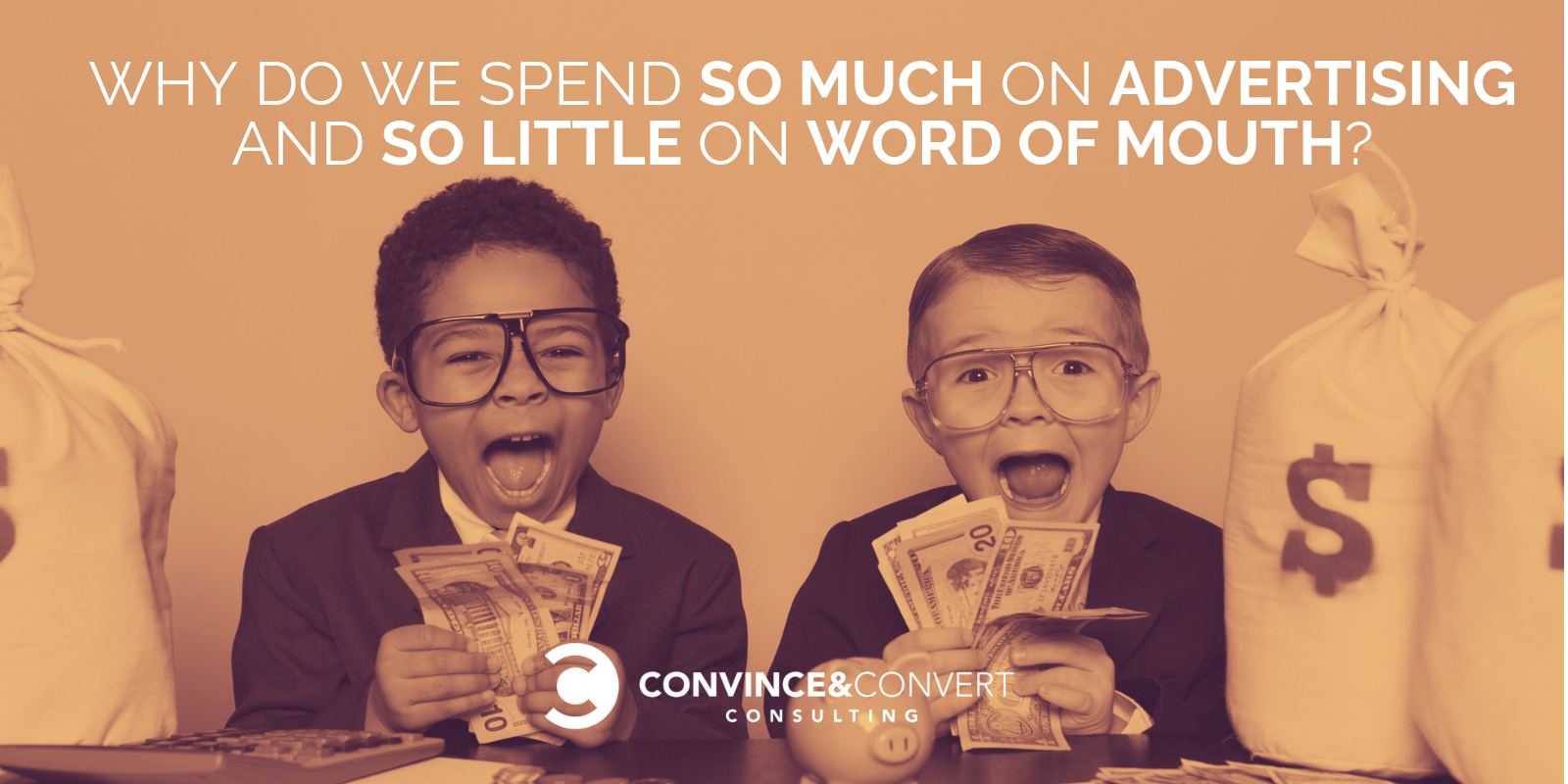
In the hours that make up your day as a marketer, what percentage of your time and budget goes to advertising?
According to eMarketer, US ad spending was forecasted to grow 6.6% in 2018, reaching $220.96 billion.
With billions of dollars and infinite hours spent on planning and optimizing paid media, it must be the top resource your consumers use when making purchase decisions, right? Okay, maybe it’s not number one, but it has to be in the top three? Top five?
No. Not even close.
This leads me to today’s number of the day. Eight.
Our recent study, “Chatter Matters: The 2018 Word of Mouth Report,” found that advertising is only the eighth most valued source of information when we make substantial purchases.
If it’s not advertising that affects consumer decisions, what do consumers actually trust?
- Personal experience
- Brand familiarity
- A word of mouth recommendation from friends and family
- Online review from friends and family
- Expert reviews
- A discount or coupon
- News coverage
- Brand advertising
Recently, my colleague Zontee Hou shared the psychology about why the higher the stakes, the more important word of mouth becomes. But how much more? Recommendations from friends are valued 27% more than advertising when making a substantial purchase.
Recommendations from friends are valued 27% more than advertising when making a substantial purchase.
Click To Tweet
As you can imagine, there are nuances to these numbers depending on audience and vertical. For instance, online word of mouth via social media is most important to consumers when buying goods and services in the electronics and home improvement categories. Conversely, offline referrals are the most powerful and persuasive when consumers are researching entertainment, children’s products, and restaurants.
These numbers bring me to the question I want you to think about: how are you prioritizing your efforts as a marketer to integrate more intentional opportunities for consumers to share their great experiences? We don’t focus on just “good” experiences, because “good” is just a prerequisite for being in business. “Good” doesn’t make people talk. Customers never say “let me tell you about this perfectly adequate experience I just had”.
To make people talk and spur word of mouth, you must give customers the ingredients for a story. This is the talk trigger.
To make people talk and spur word of mouth, you must give customers the ingredients for a story. This is the talk trigger.
Click To Tweet
In their new book, Talk Triggers: The Complete Guide to Creating Customers with Word of Mouth, Jay Baer and Daniel Lemin provide a specific framework to help you and your team figure out the unique talk trigger for your organization.
These are the four characteristics of an effective talk trigger:
- It must be REMARKABLE: The differentiator must be interesting enough to be memorable. It must be worthy of remark. It must be dynamic so that it becomes the spine of a story.
- It must be REALISTIC: The differentiator must be big enough to be memorable, but small enough to be trusted. Talk Triggers that are too grand cause suspicion. You want to find the Goldilocks Zone for your differentiator.
- It must be RELEVANT: The differentiator must relate in some way to the overall business, so as not to cause confusion and dissonance among customers.
- It must be REPEATABLE: The differentiator must be extended and available to all customers. A “loyal customer discount” is not a talk trigger because it’s offered only to a few, special people. That’s a client retention program, not a word of mouth program.
As you gear up for the next marketing planning season, take a good, hard look at your customer experience. What is the one thing that not only makes someone’s experience great but also causes someone to tell a friend about how great it was?
To see how important word of mouth is to your industry, download the complete Chatter Matters report, the most recent word of mouth research available to marketers.
The post Why do we spend much on advertising and so little on word of mouth? appeared first on Convince and Convert: Social Media Consulting and Content Marketing Consulting.
source https://www.convinceandconvert.com/digital-marketing/spend-on-advertising-word-of-mouth/
source https://derekpackard.com/why-do-we-spend-much-on-advertising-and-so-little-on-word-of-mouth/

No comments:
Post a Comment